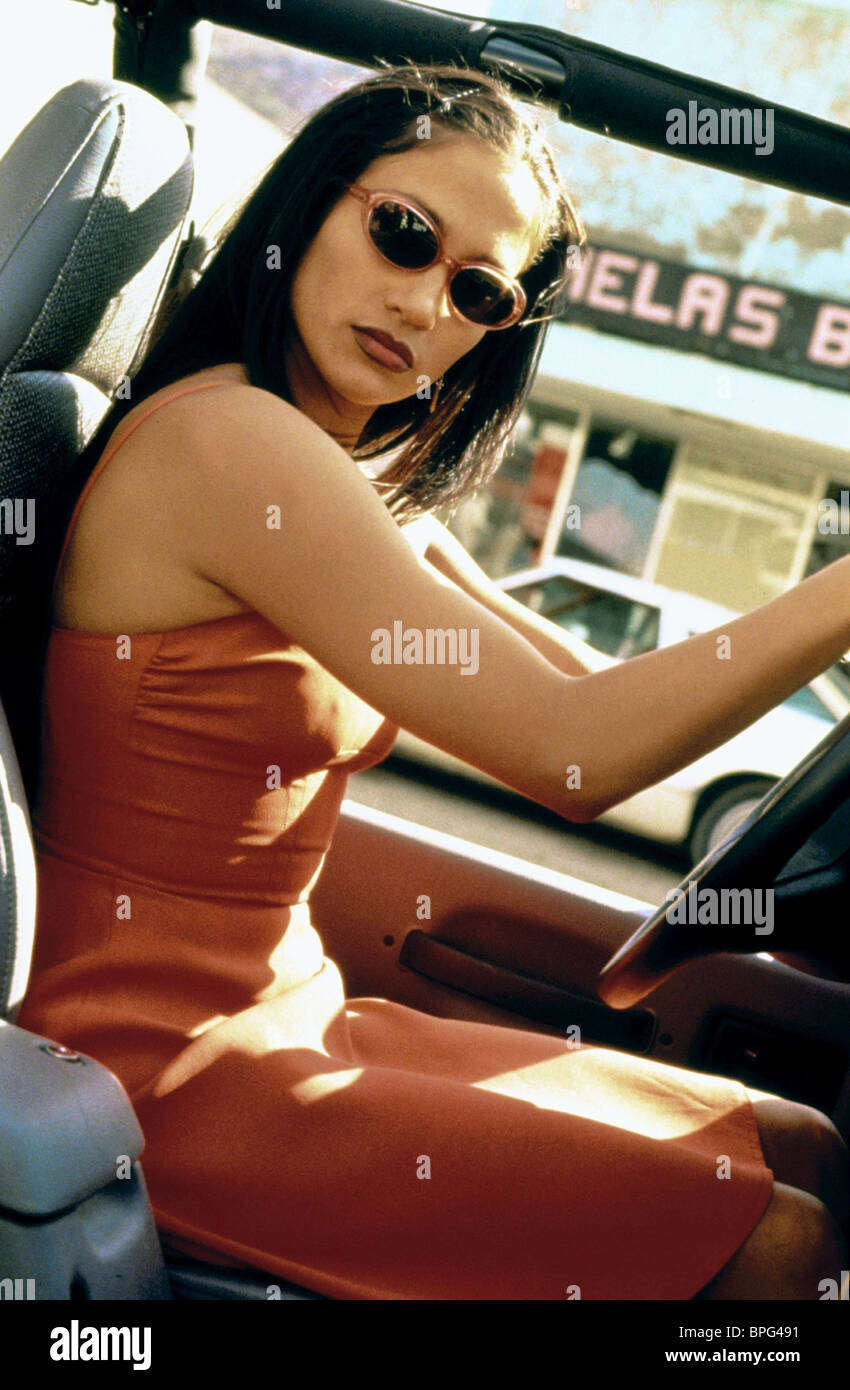
He's the corrupt town boss, the insane millionaire who can no longer satisfy his wife. Each is a cliche so pure they could come out of a film noir do-it-yourself kit: She's the femme fatale, with the body that says yes, the eyes that say now and the hips that say anything you want, and the mouth that says, but first, you have to do me a favor. Independently, he meets each of the nasty McKennas, first young, svelte, sexy, sullen Grace (Jennifer Lopez) and then her older husband, salty, crusty, deranged Jake (Nick Nolte, on a starvation diet to turn his neck into the cords of an Irish harp). Stranded, Bobby wanders into town where a chance encounter with bad guys in a convenience store gets his 30K turned to confetti by a shotgun-wielding clerk, until at long last we get to what could be called the first plot point. Quickly, Bobby encounters the first of the film's nearly endless supply of superfluous characters, a grease-slathered mechanic named Darrell (Billy Bob Thornton) who rips him off while modeling a set of teeth that appear to be the petri dish for the next generation of bubonic plague. This is the brackish backwater of the human gene pool, the town that evolution forgot.

He heads down a dirt road to the nearest burg, the scruffy town of Superior, Ariz., where the word superior could only describe the level of decadence, squalor and genetic mutation.

Somehow, he's raised it (ask no questions) and is heading across the desert to pay off when a radiator hose in his '64 Mustang blows. Sean Penn plays a sleazy hipster-gambler named Bobby Cooper who owes 30 grand to the Russian mob in Vegas. It also blows 94 minutes of material out to a super-indulgent 2 hours and 10 minutes of visual bombast. But none of this expresses anything about the mental state of his characters: It's just jazzy styling that reminds you of the key fact that this is an Oliver Stone Film. He takes what looks to be a serviceably nasty yarn about a drifter encountering deceit and murder in a small town (noir subset A-53-d/II, with such classic examples as "The Postman Always Rings Twice" and "Red Rock West") and gives it the Big Fat Over-Produced and Over-Directed Oliver Stone treatment from such recent works as "JFK" and "Natural Born Killers": the jangling cutting rhythms, the startlingly abstracted close-ups, the under-cranking for the illusion of excess speed, the alternation of film stocks. Here's what it's about: the famous Stone style. Here's what it has to do with that tough, gritty, raw world of film noir and its swanky dames and doomed suckers: nothing. No wonder it's called "U-Turn." Seemingly about something else - you know, the human condition - it hangs a fast 180 and turns out to be only about its maker. He could have picked Billy Wilder, Anthony Mann, Delmer Daves, Orson Welles, even Alfred Hitchcock.

So many great directors have made noir films it's no surprise that when Oliver Stone set out along that path, he studied someone's work.


 0 kommentar(er)
0 kommentar(er)
